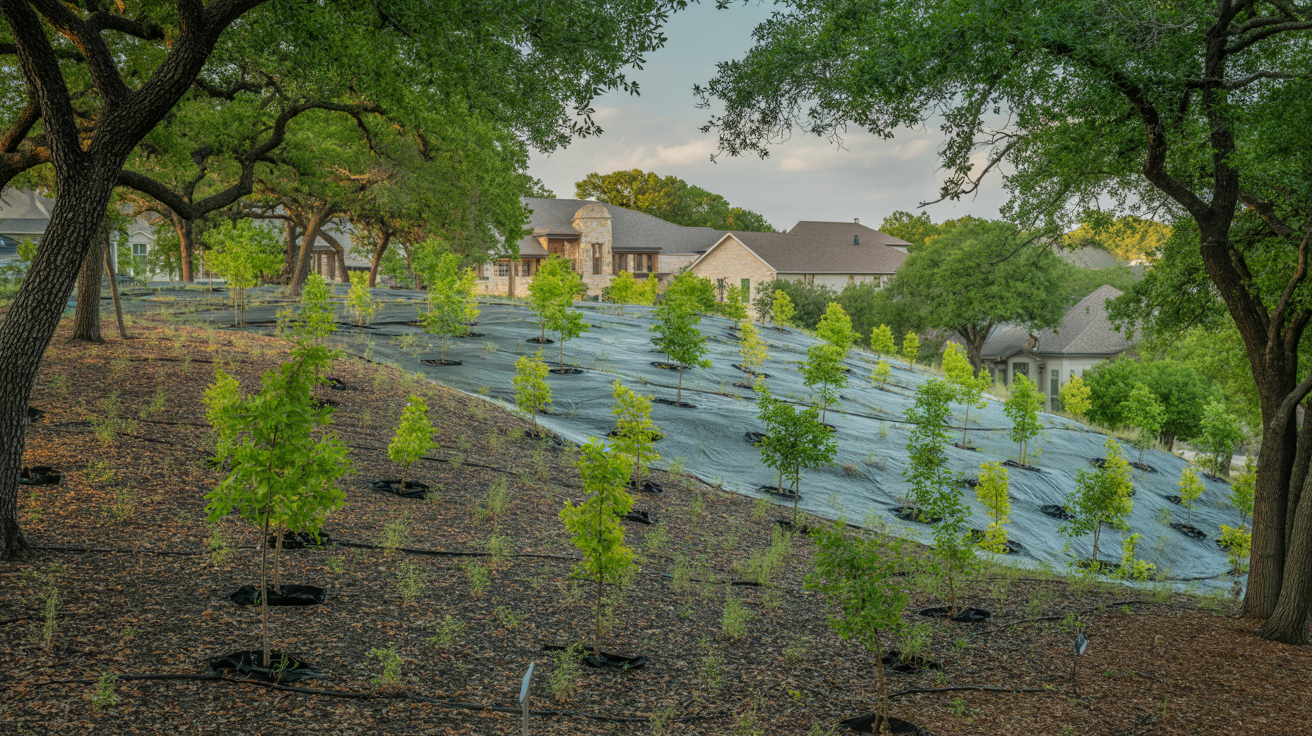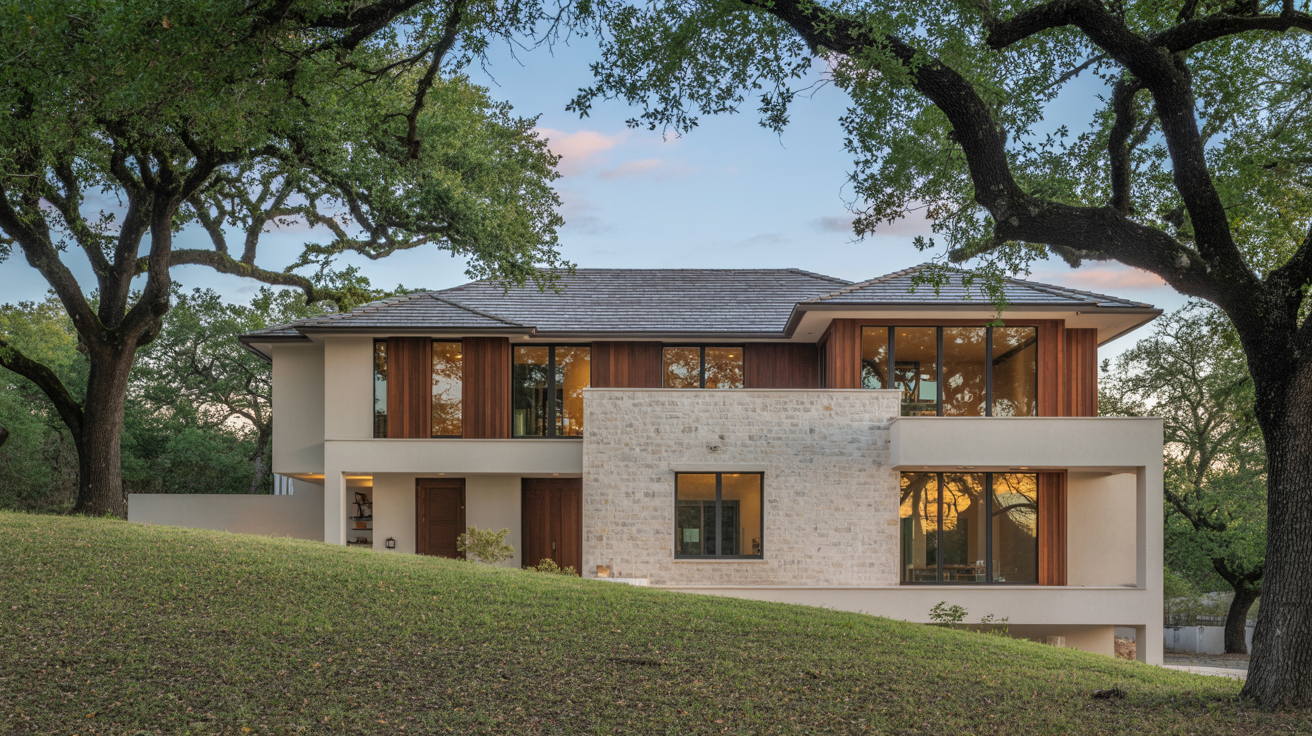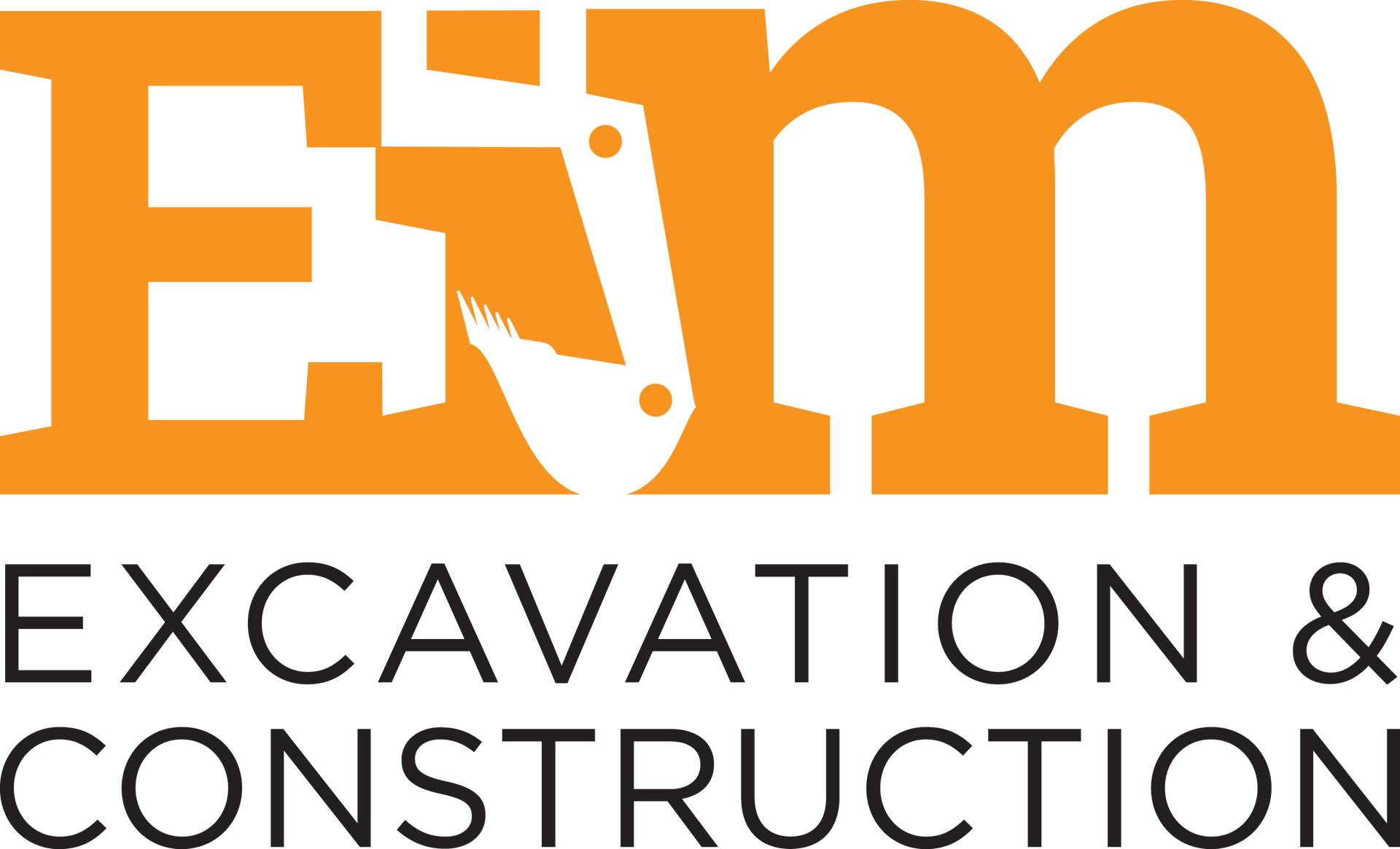Finding the Right Building Contractor in Cedar Park
Building Contractor in Cedar Park: Expert guide to hiring reliable contractors, avoiding scams & ensuring quality construction.
When you need a building contractor in Cedar Park, you're facing one of the biggest investments you'll make in your property. After twenty years in construction and founding Earth in Motion back in 2005, I've seen too many homeowners get burned by contractors who cut corners, disappear mid-project, or leave them holding the bag for permits and insurance issues. Cedar Park's booming growth means you have plenty of options, but that also means you need to know how to separate the professionals from the pretenders.
The truth is, finding a reliable contractor isn't just about getting the lowest bid. It's about finding someone who understands local regulations, carries proper credentials, and will stand behind their work long after the final payment clears. Let me walk you through what really matters when you're evaluating contractors in this market.
Understanding Cedar Park's Construction Landscape
Cedar Park sits in a unique position in the Austin metro area. You get that small-town feel with big-city growth pressures, and that creates both opportunities and challenges for construction projects. The city has been growing rapidly, which means there's constant demand for everything from custom homes to commercial developments. This growth also means the city takes building codes and contractor requirements seriously.
What many people don't realize is that Texas doesn't have a statewide general contractor license. Instead, each city sets its own rules. Cedar Park requires all contractors to register with the Development Services Department before starting any work. This isn't just paperwork – it's your first line of protection as a property owner.
From my experience working throughout Texas and Colorado, I can tell you that local requirements matter more than most people think. The soil conditions, weather patterns, and municipal codes in Cedar Park are different from what you'll find in other parts of the state. A contractor who understands these local factors will save you time, money, and headaches down the road.
The Registration Process That Protects You
When Cedar Park requires contractor registration, they're looking out for your interests. The process involves several key elements that directly impact the quality and reliability of the work you'll receive:
- Proof of licensing for the specific type of work being performed
- Certificate of insurance that covers liability and worker injuries
- Surety bonds for certain types of work, especially in public areas
- Annual renewal that keeps contractors current with changing regulations
These requirements aren't bureaucratic red tape – they're financial protections for you. When something goes wrong on a construction project, and trust me, things can go wrong, you want to know your contractor has the insurance and bonding to make it right.
Vetting Your Building Contractor: What Really Matters
Over the years, I've learned that the contractors who cause the most problems are usually the ones who seem great at first. They give you a fantastic sales pitch, promise unrealistic timelines, and often underbid the competition. Then reality hits, and you're dealing with cost overruns, delays, and quality issues.
Here's what I look for when evaluating any contractor, and what you should demand from anyone working on your property:
Documentation and Credentials
Start with the basics, but don't stop there. Yes, you need to verify licensing and insurance, but dig deeper. Ask to see their Cedar Park contractor registration. Check that their insurance is current and covers the full scope of your project. If they're doing any work near property lines or in city right-of-way areas, make sure they understand the bonding requirements.
I always tell clients to ask for references from recent projects in Cedar Park specifically. Building codes and soil conditions can vary significantly even within the same region, so you want someone with local experience. When you call those references, ask about communication, timeline adherence, and how the contractor handled unexpected issues.
Project Management and Communication Style
Construction projects involve dozens of moving parts. Materials need to arrive on schedule, subcontractors need coordination, permits require proper timing, and inspections must be scheduled correctly. A good contractor manages all of this so you don't have to.
Pay attention to how potential contractors communicate during the bidding process. Do they return calls promptly? Do they ask detailed questions about your project goals? Do they explain their process clearly? These early interactions tell you a lot about what working with them will be like when your project is underway.
At Earth in Motion, we've learned that clear communication prevents most construction problems before they start. When everyone understands the timeline, the budget constraints, and the quality expectations, projects run smoothly.
Understanding Construction Costs and Pricing Models
Pricing in construction isn't as straightforward as many people think. The lowest bid often becomes the most expensive option once you factor in change orders, delays, and quality issues. Let me break down what drives construction costs so you can make informed decisions.
Key Factors That Affect Your Project Cost
Several elements determine the final cost of any construction project, and understanding these helps you evaluate bids more effectively:
Site conditions play a huge role in project costs. Cedar Park's clay soil can present challenges for excavation and foundation work. If your contractor hasn't properly evaluated your site, their initial bid might not reflect the actual work required. I always recommend soil testing for significant projects, especially if you're dealing with drainage issues or building on sloped lots.
- Materials and specifications create major cost variations between contractors. One might bid premium materials while another uses builder-grade options. Make sure you're comparing apples to apples when evaluating proposals. The difference in long-term performance between quality materials and cheap alternatives often justifies the higher upfront cost.
- Project complexity and timeline directly impact labor costs. Rush jobs cost more because they require overtime labor and expedited material delivery. Conversely, projects with flexible timelines often cost less because contractors can schedule work more efficiently.
- Permit and inspection requirements vary based on project scope and location. A contractor who understands Cedar Park's specific requirements can navigate this process efficiently, while someone unfamiliar with local codes might face delays and additional costs.
Common Pricing Models and What They Mean
Most contractors use one of three basic pricing approaches, and each has advantages and disadvantages depending on your situation:
Fixed-price contracts give you cost certainty upfront, but they require detailed project specifications. If you change your mind about materials or design elements during construction, you'll pay for change orders. This model works best when you have clear project goals and detailed plans.
Cost-plus contracts provide more flexibility for design changes but less cost predictability. The contractor charges for actual costs plus a fee or percentage. This approach works well for renovation projects where you might encounter unexpected conditions, but it requires trust and good communication.
Time-and-materials pricing makes sense for smaller projects or preliminary work where the full scope isn't clear. However, it can lead to cost creep if not managed carefully.
Protecting Yourself Through Smart Contracting
A good contract protects both you and your contractor by clearly defining expectations, responsibilities, and procedures for handling problems. After two decades in this business, I've seen how proper contracts prevent disputes and keep projects on track.
Essential Contract Elements
Your construction contract should address several key areas that directly impact project success:
Scope of work needs to be detailed and specific. Vague descriptions lead to disputes about what's included and what costs extra. Include material specifications, quality standards, and cleanup responsibilities. If you're unsure about technical details, ask your contractor to explain them in plain language.
Timeline and milestones should be realistic and include provisions for weather delays and other factors beyond the contractor's control. Cedar Park's weather can be unpredictable, so build some flexibility into your schedule while maintaining clear completion dates.
Payment schedule should align with project milestones, not just calendar dates. Avoid contractors who want large upfront payments or payment in full before completion. A reasonable payment schedule protects both parties and ensures work progresses as planned.
Change order procedures define how modifications to the original scope will be handled. Changes are common in construction, but they should be documented in writing with clear cost and timeline impacts before work proceeds.
Warranty and Quality Guarantees
Reputable contractors stand behind their work with written warranties that cover both materials and labor. These guarantees should specify what's covered, for how long, and how warranty issues will be resolved. Be wary of contractors who won't provide written warranties or who offer only very short coverage periods.
At Earth in Motion, we believe quality work should last, and we warranty our construction accordingly. When you invest in professional construction services, you should have confidence that the contractor will address any issues that arise from their workmanship.
Red Flags and Warning Signs
My military background taught me to pay attention to details that others might miss. In construction, small warning signs often indicate bigger problems.
Here are the red flags that should make you look elsewhere:
Door-to-door solicitation is almost always a bad sign. Legitimate contractors get work through referrals and reputation, not by knocking on doors after storms. If someone shows up unsolicited offering to fix your roof or driveway, be very cautious.
Pressure for immediate decisions indicates a contractor who doesn't respect your need to make informed choices. Good contractors understand that construction projects are major investments requiring careful consideration.
Requests for full payment upfront or cash-only payments suggest financial instability or worse. Professional contractors have established credit relationships with suppliers and don't need your money to buy materials before starting work.
Lack of local references or unwillingness to provide them indicates inexperience in your area or problems with previous customers. Any contractor worth hiring should be proud to share examples of their work and put you in touch with satisfied clients.
Missing or expired insurance puts you at serious financial risk. If someone gets hurt on your property or the contractor damages your home, you could be liable for costs that insurance should cover.
The Value of Local Experience and Specialized Knowledge
Cedar Park's construction market includes everything from residential remodeling to large commercial developments. The contractors who succeed here understand that different projects require different approaches and expertise. When evaluating potential contractors, consider their experience with projects similar to yours.
For example, if you're planning a custom pond or water feature, you want someone who understands local soil conditions, drainage patterns, and permit requirements. Having worked on pond construction projects throughout Texas and Colorado, I can tell you that water features require specialized knowledge that general contractors might not possess.
The same principle applies to other specialized construction needs. A contractor who primarily works on commercial buildings might not be the best choice for a historic home renovation. Someone who specializes in new construction might struggle with the unique challenges of working within existing structures.
Understanding Different Construction Specialties
Cedar Park's diverse construction market supports various specializations, each requiring different skills and knowledge:
Residential remodeling demands expertise in working within existing structures, often with limited access and the need to maintain livability during construction. These projects require careful planning and experience with unexpected conditions that older homes can present.
Commercial construction involves different building codes, more complex permitting processes, and specialized systems for HVAC, electrical, and plumbing. Contractors in this space need experience with project management on a larger scale and coordination with multiple stakeholders.
Site development and earthwork require understanding of soil conditions, drainage, utility placement, and environmental considerations. This type of work forms the foundation for all other construction activities and demands precision and expertise.
Making Your Final Decision
After you've gathered bids, checked references, and verified credentials, making the final choice often comes down to trust and communication. You want a contractor who understands your goals, communicates clearly about challenges and solutions, and demonstrates the experience and integrity to deliver quality results.
Don't just choose the lowest bid or the contractor who promises the fastest completion. Consider the total value proposition, including quality of materials, craftsmanship standards, warranty coverage, and the contractor's reputation for completing projects on time and on budget.
Remember that construction projects involve numerous decisions and potential complications. You want a contractor who will partner with you through these challenges, not disappear when problems arise or blame issues on factors beyond their control.
Moving Forward with Confidence
Cedar Park's construction market offers excellent opportunities for property owners who approach contractor selection thoughtfully. The city's growth and regulatory framework create an environment where professional contractors can thrive while providing strong protections for property owners.
Take time to thoroughly vet potential contractors, ask detailed questions about their experience and processes, and insist on clear documentation for every aspect of your project. The extra effort you invest in contractor selection will pay dividends throughout your construction experience and in the long-term performance of the completed work.
Whether you're planning a home renovation, commercial build-out, or specialized project like a custom pond, working with an experienced, properly credentialed contractor makes all the difference. At Earth in Motion, we've built our reputation on delivering quality construction solutions that stand the test of time, and we understand what it takes to be a trusted building contractor in Cedar Park.
How do I verify that a building contractor in Cedar Park is properly licensed and insured?
At Earth in Motion, we maintain all required Cedar Park contractor registration through the Development Services Department, plus comprehensive liability and workers' compensation insurance. I always provide clients with current certificates and registration documentation upfront. You should verify any contractor's Cedar Park registration status directly with the city, and request to see current insurance certificates that cover the full scope of your project. Never work with a contractor who can't immediately provide this documentation or asks you to wait to see it.
What factors determine the cost of my construction project in Cedar Park?
Several key factors influence your project cost, and I evaluate each one during our initial consultation. Site conditions play a major role - Cedar Park's clay soil can present excavation challenges that affect foundation and drainage work. Project complexity, material specifications, timeline requirements, and permit needs all impact the final investment. At Earth in Motion, I conduct thorough site evaluations and provide detailed proposals that account for these variables, so you understand exactly what drives your project cost and can make informed decisions about materials and scope.
How long will my construction project take to complete?
Project timelines depend on scope, complexity, weather conditions, and permit processing times specific to Cedar Park's requirements. During my 20 years in construction, I've learned that realistic scheduling prevents most project delays. At Earth in Motion, I provide detailed project schedules that account for Cedar Park's permitting process, material delivery times, and seasonal weather patterns. I build appropriate buffers into timelines while maintaining clear milestones, and I communicate proactively about any factors that might affect your completion date.
What type of warranty do you provide on construction work?
Earth in Motion provides comprehensive written warranties covering both materials and workmanship because I stand behind every project we complete. Our warranty terms vary based on project type and scope, but I always specify exactly what's covered, the duration of coverage, and our process for addressing any warranty issues. Quality construction should last, and I back that commitment with guarantees that give you confidence in your investment. I explain all warranty details clearly before project start and provide everything in writing.
How do you handle unexpected issues or changes during construction?
Change orders and unexpected conditions are common in construction, and I've developed clear processes to handle them professionally. At Earth in Motion, I document all changes in writing with detailed cost and timeline impacts before proceeding with any additional work. My military background taught me the importance of clear communication and documentation. I keep clients informed about any site conditions or project developments that might require adjustments, and I never proceed with changes without written approval and clear understanding of the implications.



